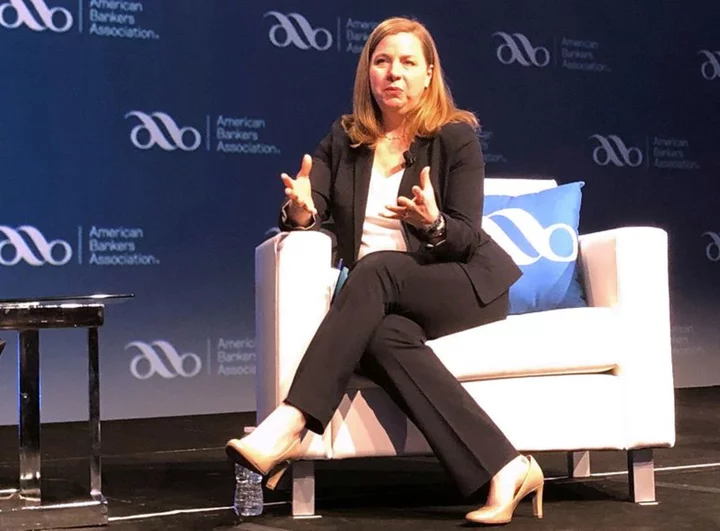The U.S. Federal Reserve will probably need to raise interest rates further if inflation stays high, Fed Governor Michelle Bowman said on Friday, adding that key data so far this month has not convinced her that price pressures are receding.
"Should inflation remain high and the labor market remain tight, additional monetary policy tightening will likely be appropriate to attain a sufficiently restrictive stance of monetary policy to lower inflation over time," Bowman said in remarks prepared for delivery at the European Central Bank in Frankfurt, Germany that mostly focused on the fallout from the recent U.S. bank failures. "I also expect that our policy rate will need to remain sufficiently restrictive for some time to bring inflation down and create conditions that will support a sustainably strong labor market."
The Fed last week lifted interest rates a 10th straight time, bringing the benchmark rate to a 5%-5.25% range in what has been the most aggressive round of policy tightening in 40 years. Fed Chair Jerome Powell signaled it may be time for the central bank to pause and assess the impact of the Fed's policy tightening to date.
Since then the economic data has been mixed, with a Labor Department report last week showing U.S. employers added a whopping quarter-million jobs last month and the unemployment rate edged down to 3.4%.
This week a separate report showed consumer prices rose 4.9% in April, still far higher than the Fed's 2% target but down from 5% in March, and enough to convince financial markets that the Fed will not raise rates any further.
But in her remarks Friday, Bowman said neither the jobs report nor the inflation report provided the "consistent evidence" of falling inflation that she is looking for as she considers whether interest rates are high enough.
Fed policy is not on a preset path, she said. And there are, she said, some signs that higher rates are having an effect, including slowing in demand, fewer job openings and slower economic growth. Credit is also likely to continue tighten, and recent bank failures have added uncertainty to the economic outlook, she said.
"In my view, our policy stance is now restrictive, but whether it is sufficiently restrictive to bring inflation down remains uncertain," Bowman said. "I will continue to closely monitor the incoming data as I consider the appropriate stance of monetary policy going into our June meeting."
(Reporting by Ann Saphir; editing by Diane Craft)

